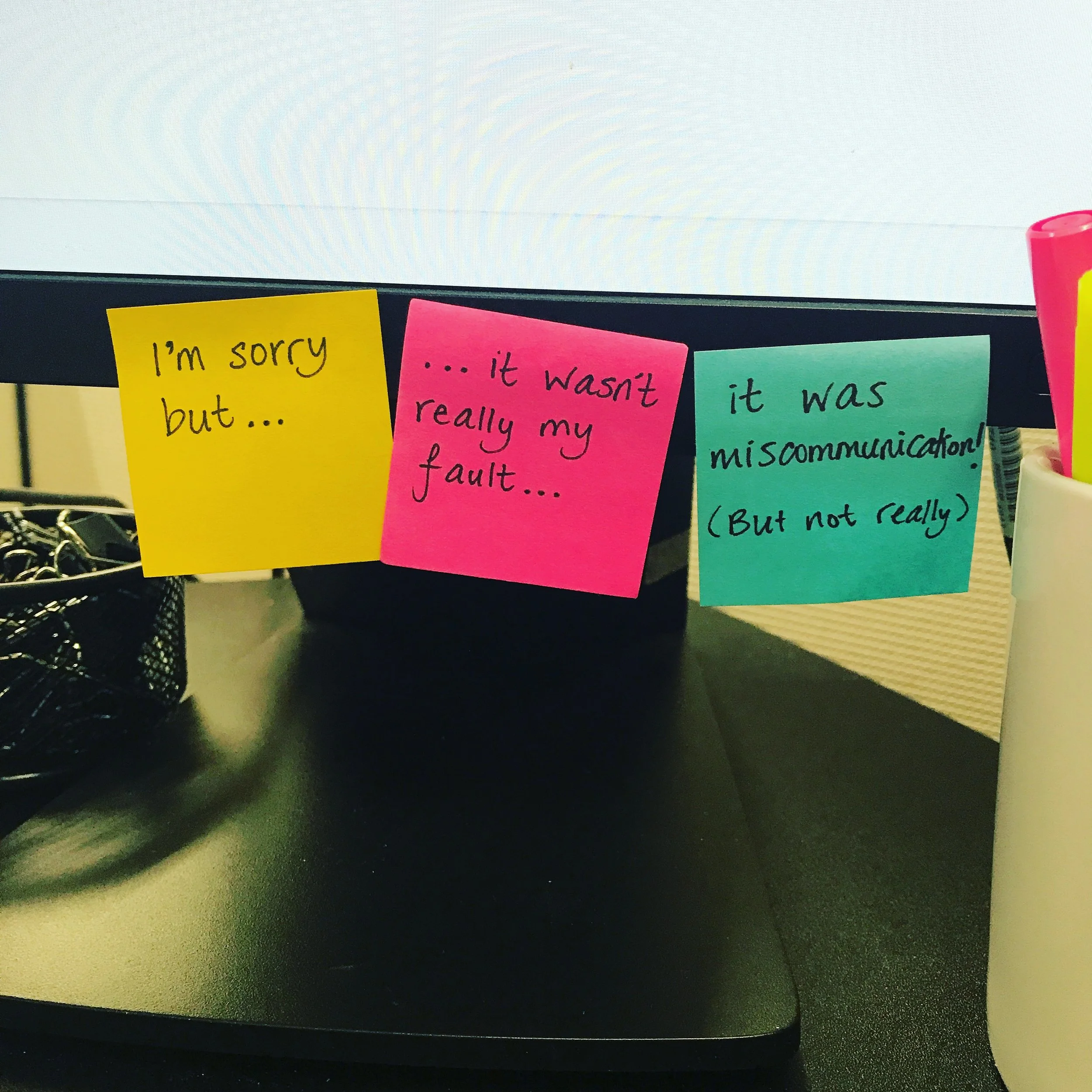Say Sorry Like You Mean it
Most people take pride in their work. Whether you spend an hour or several months on a task, you’d like to think that the output is a reflection of your effort and dedication. It feels good to hear a “Great job!” Or “Nice work!” but what happens when you get called out on mistakes?
Earlier in my career, I felt the need to constantly prove myself. That meant making sure people knew my accomplishments and that I was capable. The pitfall of that one-tracked mind of solely focusing on the successes is that it made me feel less accountable to things on the downside. I was defensive when I was called out on mistakes.
I may have misread the email assignment, forgot to include an additional type of analysis, failed to take down the notes accurately or followed up appropriately, but somehow it was never really solely "my fault”. Partial blame would go to something that was out of my control - it was the computer/software, the responsibility of another team/individual or my favourite “miscommunication.”
Now that I'm on my third role since graduating, I’ve learned over time that humility is highly important at work. It’s better to say “I am sorry” than to say “I am sorry BUT...”
Being sincerely apologetic for messing up shows you genuinely recognize your faults and are willing to learn from your mistakes. Ultimately, that’s the way you grow and improve.
When working with younger analysts, sometimes I see the old version of me - the one with excuses. It may seem “safer” to explain why something went wrong, but more often than not, it shows that your ego is getting in the way of truly accepting fault.
The next time someone spots a mistake of yours, pause for a moment and assess - how would you instinctively react vs. how should you react?
Even if the mistake was incorrectly called out, there is a better way than being outright defensive. If the mistake was indeed your fault, swallow your pride, say sorry like you mean it and put your problem solving hat on.




